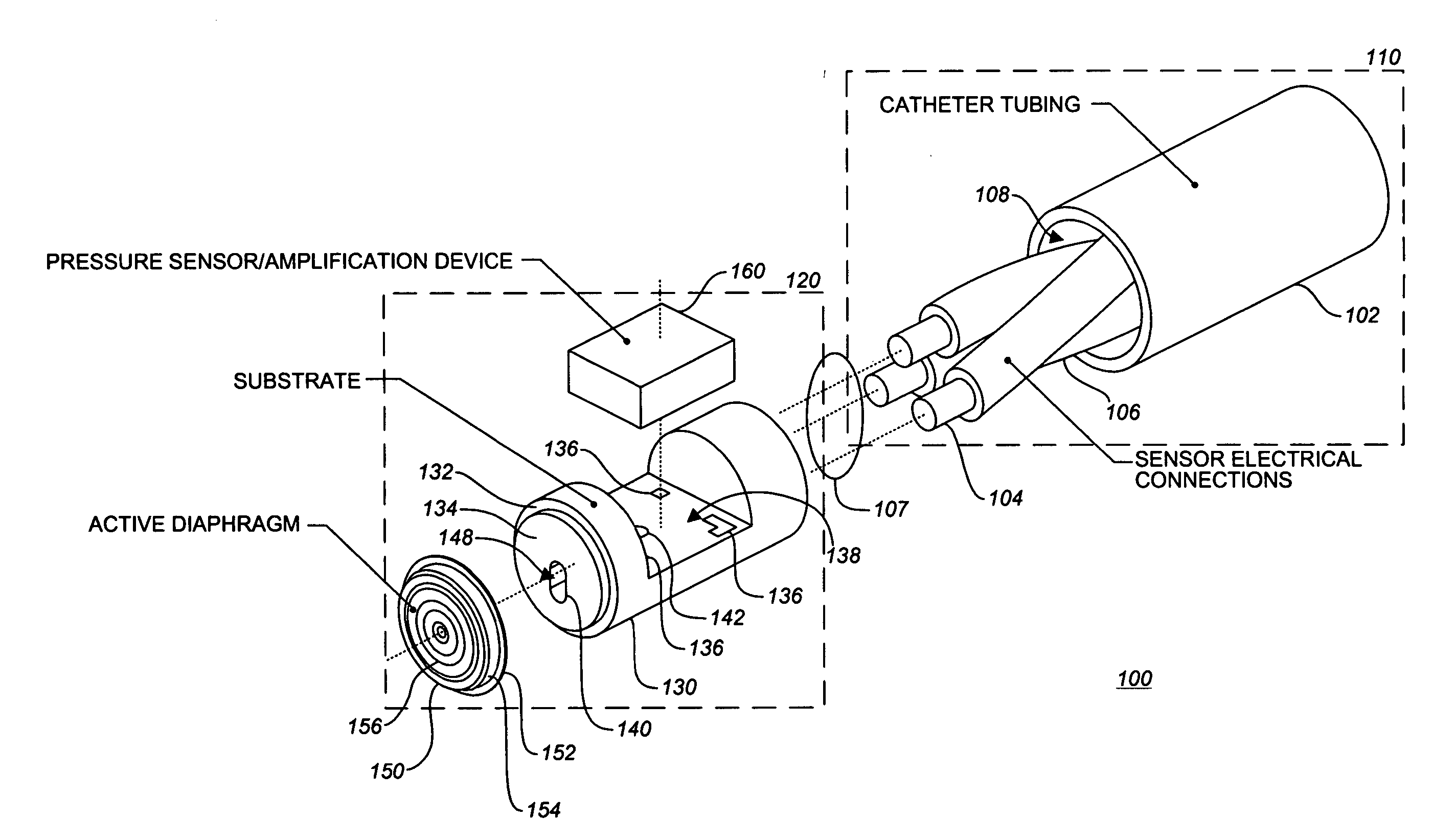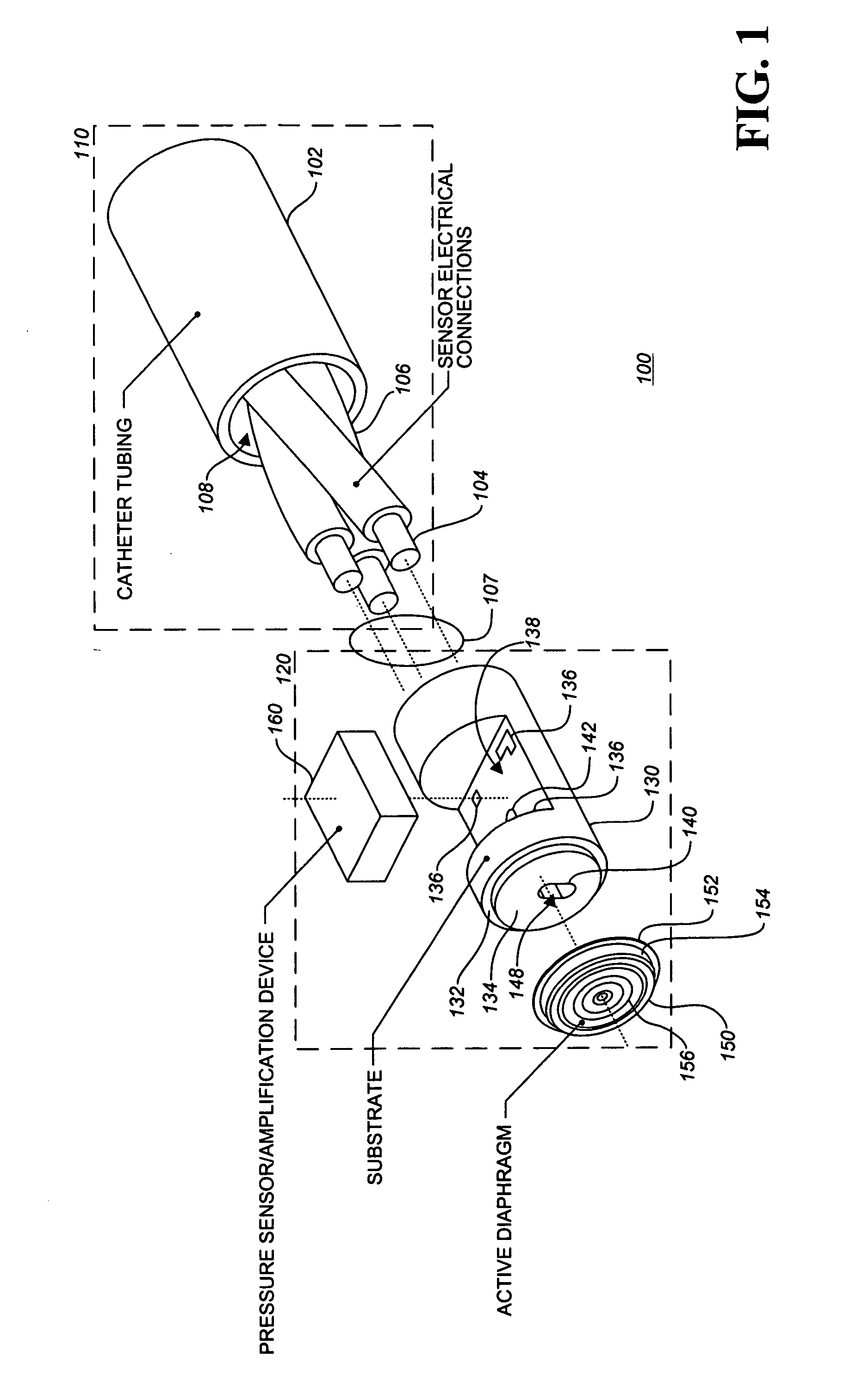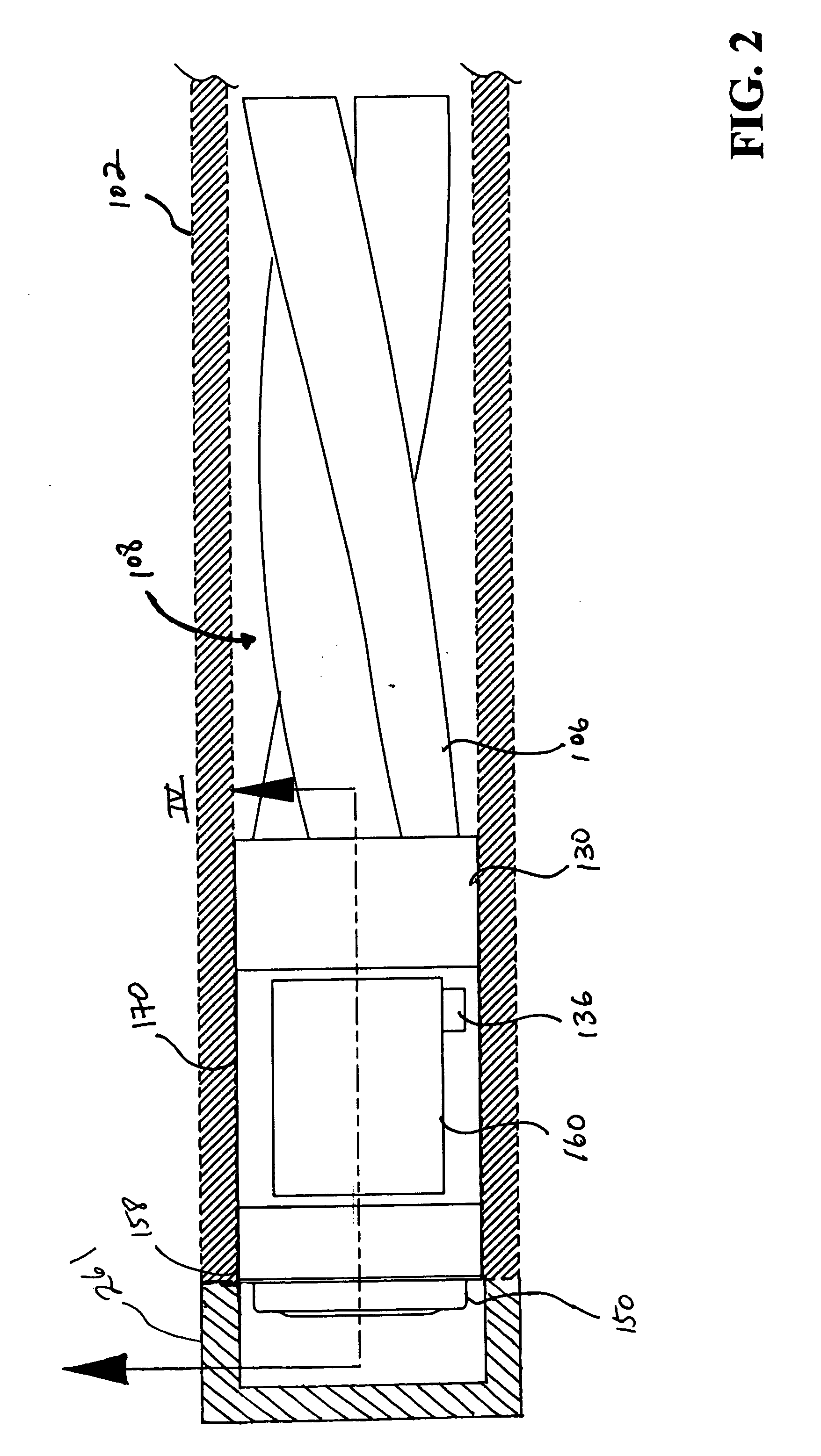Lead embedded pressure sensor
a sensor and lead technology, applied in the field of intracardiac chamber pressure sensing, can solve the problems of high power level of sensors based on wheatstone bridge topology, signal degradation, and limited capacitance change per unit pressure, and achieve low power operation, long-term signal stability, and high signal amplitude
- Summary
- Abstract
- Description
- Claims
- Application Information
AI Technical Summary
Benefits of technology
Problems solved by technology
Method used
Image
Examples
Embodiment Construction
[0010] The present invention solves the deficiencies of the existing systems by creating a pressure sensing (pressure sense) module in the form of a physically small, biologically inert package. It is intended for full implantation within the tip of a pacemaker lead or catheter. In accordance with one preferred embodiment of the present invention, the pressure sensing module is intended to be capable of chronic low power operation with high signal amplitude and long-term signal stability.
[0011] In one preferred embodiment of the present invention, a pressure sensing module includes a pressure sensing capsule having a body with a distal end and a proximal end, an electrical circuit integrated into the body, a first cavity located between the distal end and the proximal end, and an isolation diaphragm coupled to the distal end of the body. The pressure sensing module further includes a Mechanical Electrical Mechanical System (MEMS) pressure sensor mounted in the first cavity of the b...
PUM
| Property | Measurement | Unit |
|---|---|---|
| dielectric constant | aaaaa | aaaaa |
| voltages | aaaaa | aaaaa |
| pressure | aaaaa | aaaaa |
Abstract
Description
Claims
Application Information
 Login to View More
Login to View More - R&D
- Intellectual Property
- Life Sciences
- Materials
- Tech Scout
- Unparalleled Data Quality
- Higher Quality Content
- 60% Fewer Hallucinations
Browse by: Latest US Patents, China's latest patents, Technical Efficacy Thesaurus, Application Domain, Technology Topic, Popular Technical Reports.
© 2025 PatSnap. All rights reserved.Legal|Privacy policy|Modern Slavery Act Transparency Statement|Sitemap|About US| Contact US: help@patsnap.com



